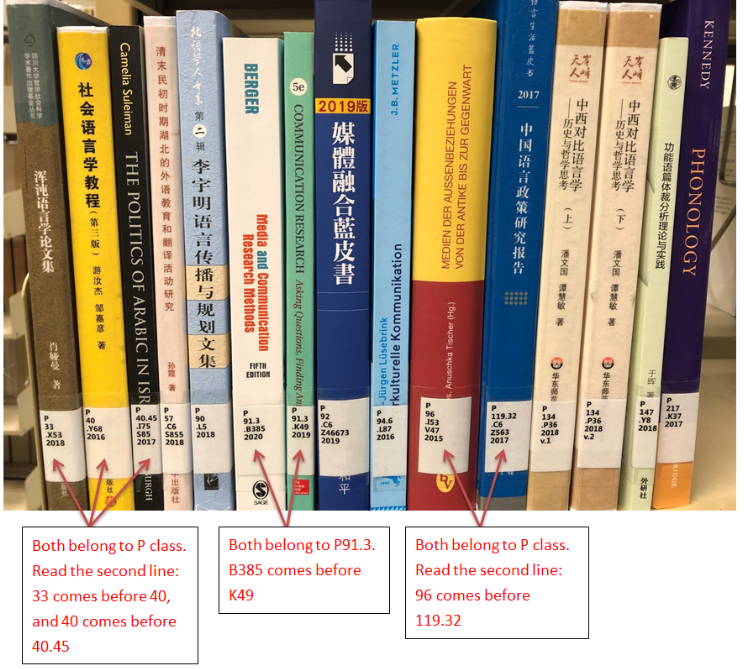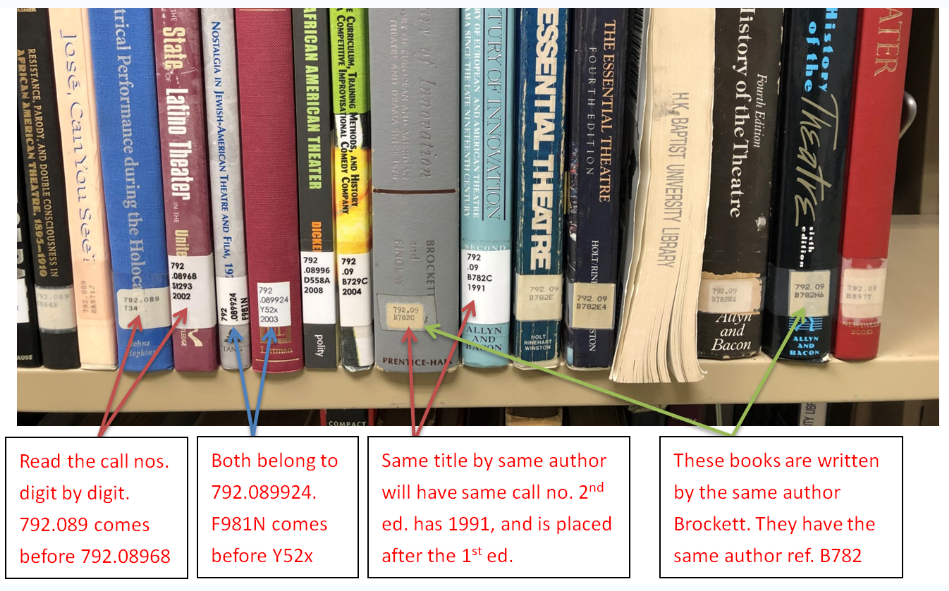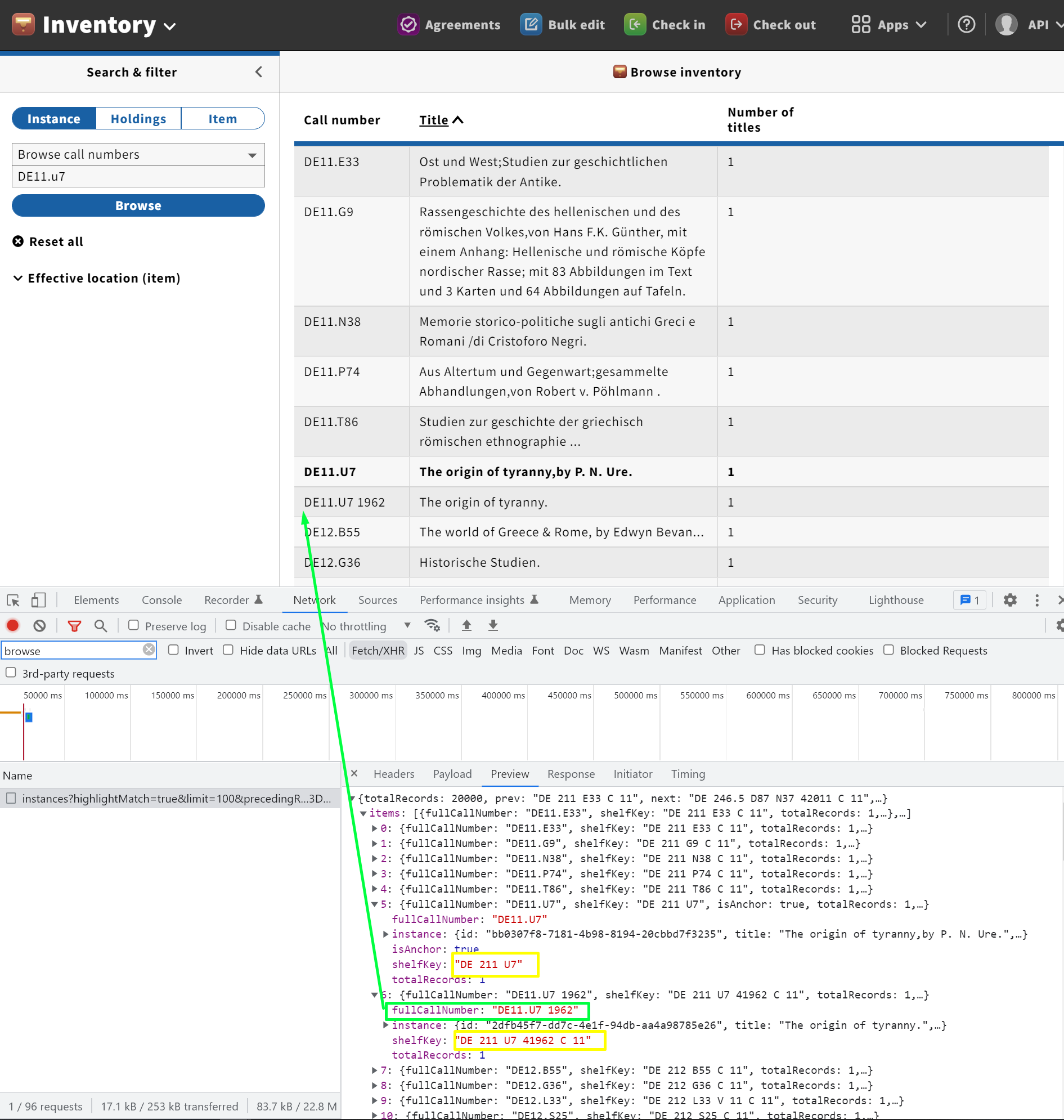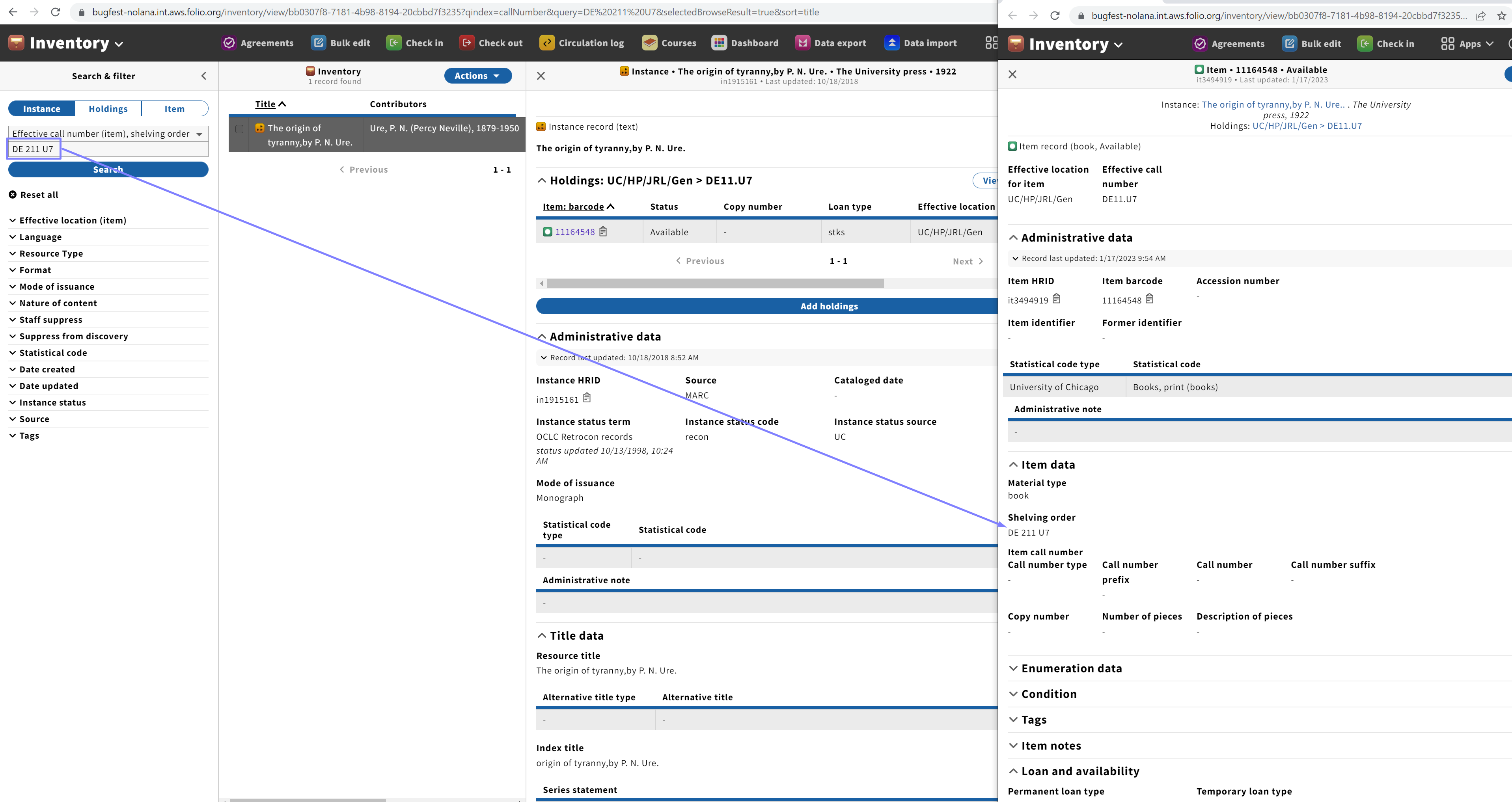Call Numbers Browse
What is a call number?
A call number is a book identifier that helps librarians and patrons locate the book in the library. In general, the call number usually consist of a part related to classification, a part related to authors and a part of publication year. If the library has multiple copies of the same publication, the copy number will also be added. How the elements are represented in the call number depends on the call number type. There are several call numbers types, with Library of Congress, Dewey Decimal, SuDoc being the most common in American libraries. Many libraries have also their own local call number, that are often a variation of other call number types.
Call number examples
Library of Congress call number
In this example Z is the main class letter for bibliography and library science. The numbers 668 refer to the subdivision for library education in the United States. The part of the call number following a period R360 represents author’s last name (Rehman), followed by publication year (1987)
In this example PN represents the subclass Literature (the main class P covers Language and Literature). 3433 is a subdivision for science fiction .2 is the decimal expansion for 982congresses. . I580 refers to a specific science fiction conference, followed by publication year (1987)
(For more examples of Library of Congress call numbers see: here)
Dewey Decimal call number
In Dewey Decimal system numbers from 300 to 399 represent Social Sciences and 304 represents Factors affecting social behaviors. H981 represents the author (Huxley)
SuDoc call numbers
SuDoc stands for "Superintendant of Documents." This type of call number is applied to federal (government-produced) documents. Instead of being arranged by subject (like LC and Dewey call numbers), SuDoc numbers arrange documents by the agencies that produce them. For example, A stands for Agriculture, while T stands for Treasury.
C 3. 186/22: 999
In this example C: Issuing agency (Commerce Department), 3.represents Subagency (Census Bureau), 186 represents Series Title (Current Population Reports) 22: Document Title (Poverty in the U.S.) and 999: Year (1999)
Call number shelving order examples
Library of Congress call numbers | Dewey Decimal call numbers |
|---|---|
Above examples from Understanding Call Numbers
Why call number browse?
Since call numbers are intended to be unique, it is important for cataloging librarians to determine which of the call numbers is already taken and how the new book will fit in the existing collection. Also, call numbers group library resources into classes (subjects) and librarians can use them to determine where a new book should be classified to be together with similar topics. Browsing by call number also allows patrons to find books related to their research area.
The call number browse implementation in FOLIO relies on two parts:
- Populating generating shelving order on item level records
- Rendering records when users browse
Call number browse in FOLIO
Generating shelving order
FOLIO call number implementation relies on item record's effectiveShelvingOrder - a system generated normalization of the call number that was introduced for for call number sorting purposes. The value is populated using the algorithm that was originally design to support Library of Congress Classification schema (MODINVSTOR-381) and extended to Dewey call numbers (MODINVSTOR-876) and other call numbers types (MODINVSTOR-877) that covers SuDoc and local call numbers.
Rendering records
When users browse call numbers in the Inventory app, the records are ordered by the item record's shelving order using the algorithm described here.. The Call Number column on the result list is populated with the indexed fullCallNumber value that consists from call number prefix, call number and call number suffix as implemented in MSEARCH-12 (for items) and MSEARCH-81 (for holdings records).
When the user clicks on a row the browse list, the record is identified by the item record shelving order:
Additional information
Browse example for the call number DE11.U7 that will return one preceding record and one matching record: /browse/call-numbers/instances?query=callNumber>= de11.u7 or callNumber < de11.u7&expandAll=true&highlightMatch=true&limit=2&precedingRecordsCount=1
Helpful links
- Browse Use Cases
- Call number examples provided by FOLIO community
- Library of Congress Classification
- How to read Dewey call numbers
- Superintendent of Documents Call Numbers - SuDoc
- University of Chicago - call number browse
- Cornell University - call number browse



